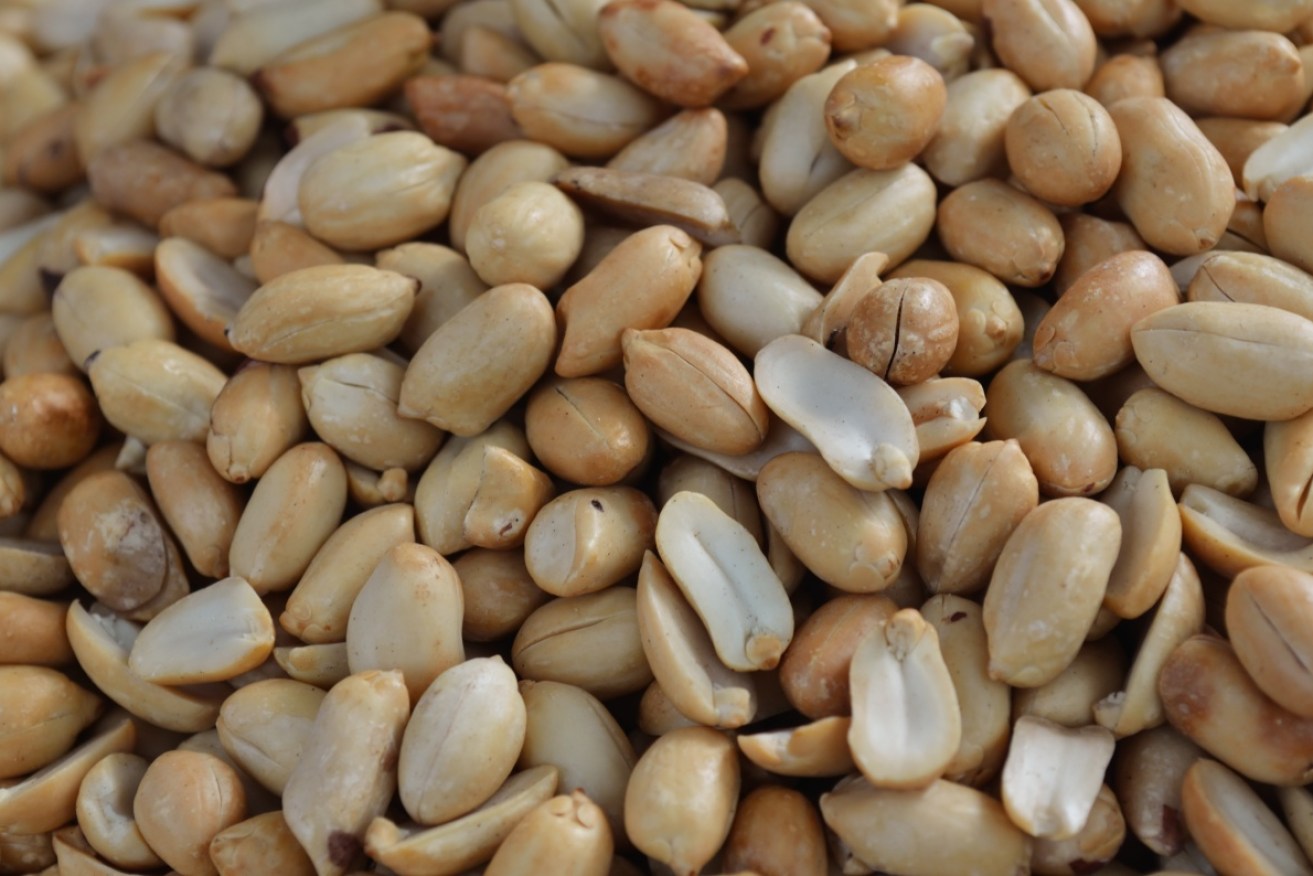Peanut allergy treatment can last up to four years: Australian study

This new treatment could protect people from allergic reactions to peanuts. Photo: Getty
A novel treatment which can help children overcome peanut allergies can provide relief from reactions for up to four years, Australian researchers say.
Professor Mimi Tang, from the Murdoch Children’s Research Institute, developed a treatment where kids with peanut allergies were given a probiotic called lactobacillus rhamnosus, with a peanut protein, once a day for 18 months.
They found one month after stopping treatment, more than 80 per cent of children who received the protein and probiotic could tolerate peanuts without any allergic symptoms at the end of the trial.
The same children were then tested four years later.
Professor Tang said 70 per cent of the children were still able to eat peanuts without allergic reactions.
“These findings suggest our treatment is effective in inducing long-term tolerance, up to four years after completing treatment and is safe,” she said.
“Two thirds of the treated participants were able to continue regular peanut ingestion and more than half were ingesting moderate-to-large amounts of peanuts on a regular basis.”
No worries over parties, sleepovers now

Peanut butter sandwiches are banned from some Australian schools. Photo: Getty
One of those that successfully took part in the study is 10-year-old Olivia May.
She suffered an allergic reaction seven years ago while biting into a peanut butter sandwich.
“We visited the allergist the first time [and] he said ‘sorry, you’re going to have to go home and empty your pantry out, clear it of all nuts, anything with nuts in it’,” Olivia’s mother Tanya May said.
But today Olivia shows no signs of her allergy.
“I think perhaps one of the best things has been to be able to just go to parties and I can drop her off or at a sleep over,” Ms May said.
“I used to hand over a EpiPen to a parent I’d hardly knew and give them a 30-second explanation how to use it.
“[But] to not have to worry about putting that responsibility in someone else’s hands is a great relief.”
How does it work?
The idea behind the treatment is that the probiotic changes how the body’s immune system responds to an allergen, in this case peanuts.
“The probiotic acts on the immune system, encourages the immune system to generate a protective, or tolerance, response rather than allergy,” Professor Tang said.
“When given regularly over time, we hope to see the immune system recognise the antigen,” she said.
Food allergy occurs in about one in 20 children and in about two in 100 adults.
According to the Australasian Society of Clinical Immunology and Allergy, the most common allergy triggers are egg, cow’s milk, peanut, tree nuts, seafood, sesame, soy, fish and wheat.
The majority of food allergies in children are not severe, and may be “outgrown” with time.
But some, particularly peanut, tree nut, seed and seafood tend to be lifelong allergies.
Some food allergies can be severe, causing a life-threatening reaction, known as anaphylaxis.
Researchers from the Murdoch Children’s Research Institute said larger studies of the probiotic peanut protein treatment were needed to assess long-term safety outcomes.
It is also running a trial seeing whether children can overcome peanut allergies by simply taking the probiotic or whether the peanut protein is needed as well.
The study was funded by the Murdoch Children’s Research Institute and the Australian Food Allergy Foundation.
– ABC








